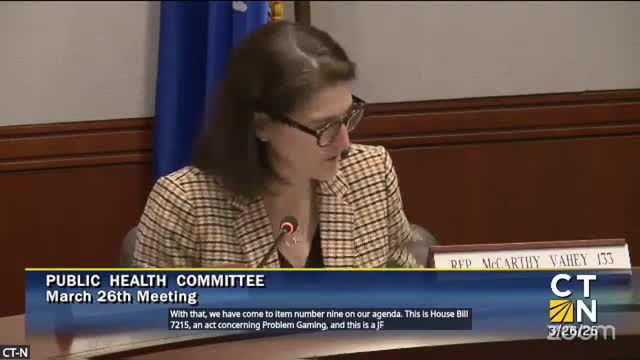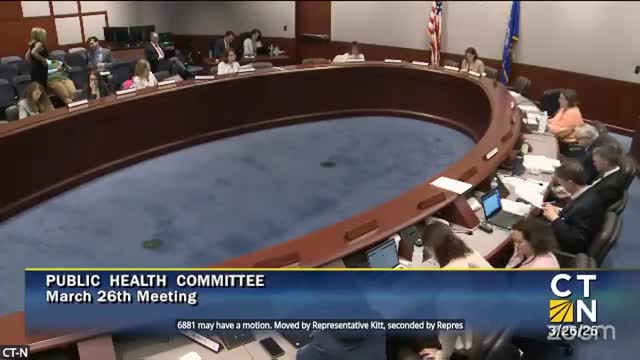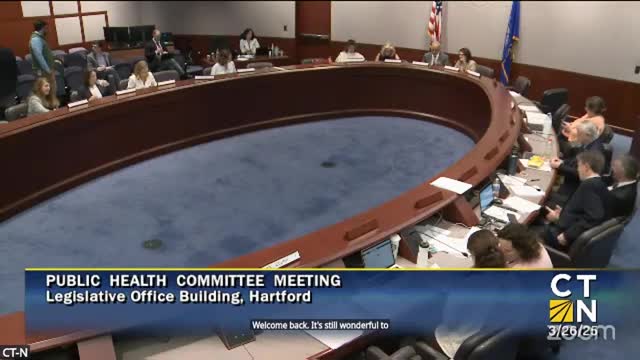Article not found
This article is no longer available. But don't worry—we've gathered other articles that discuss the same topic.

Committee endorses measure directing DMHAS to study and develop services for Internet gaming disorder

Public Health Committee advances maternal health bill with report‑card provision; amendment to strip data section fails

